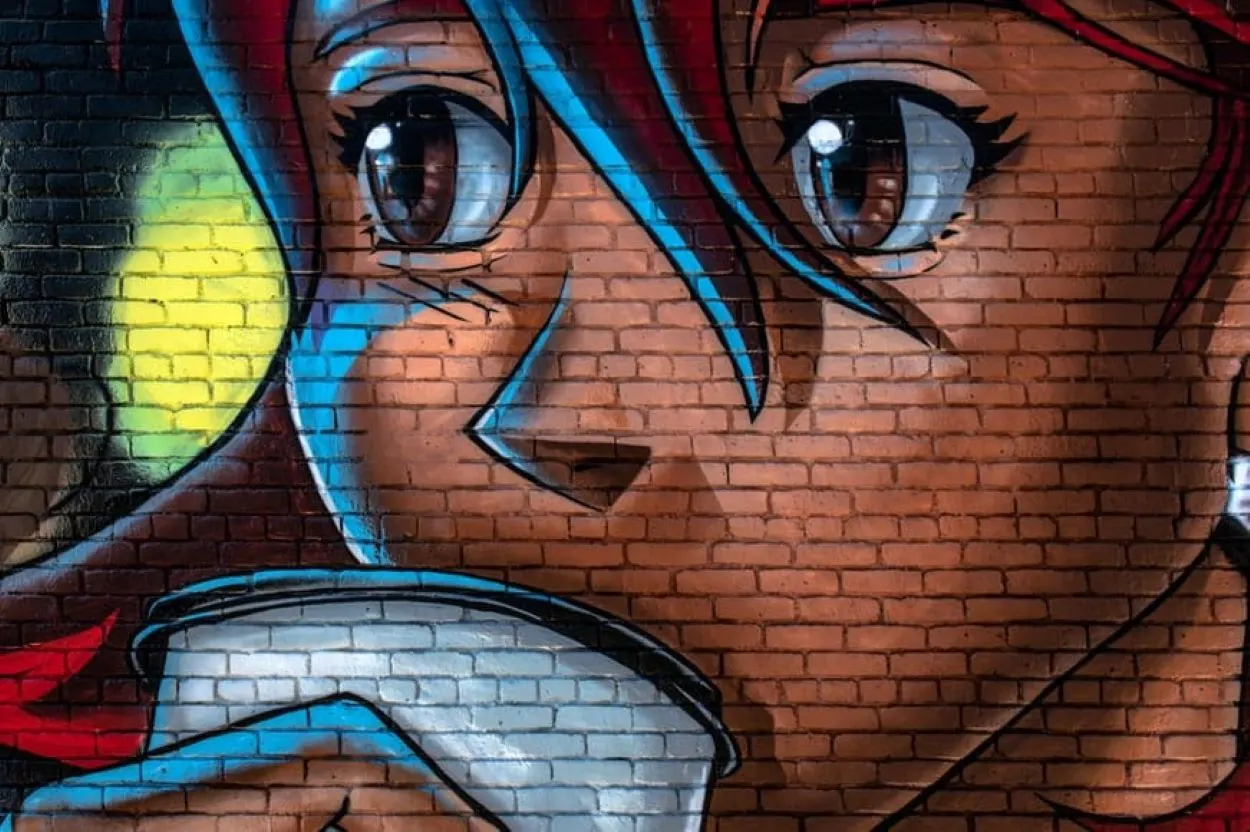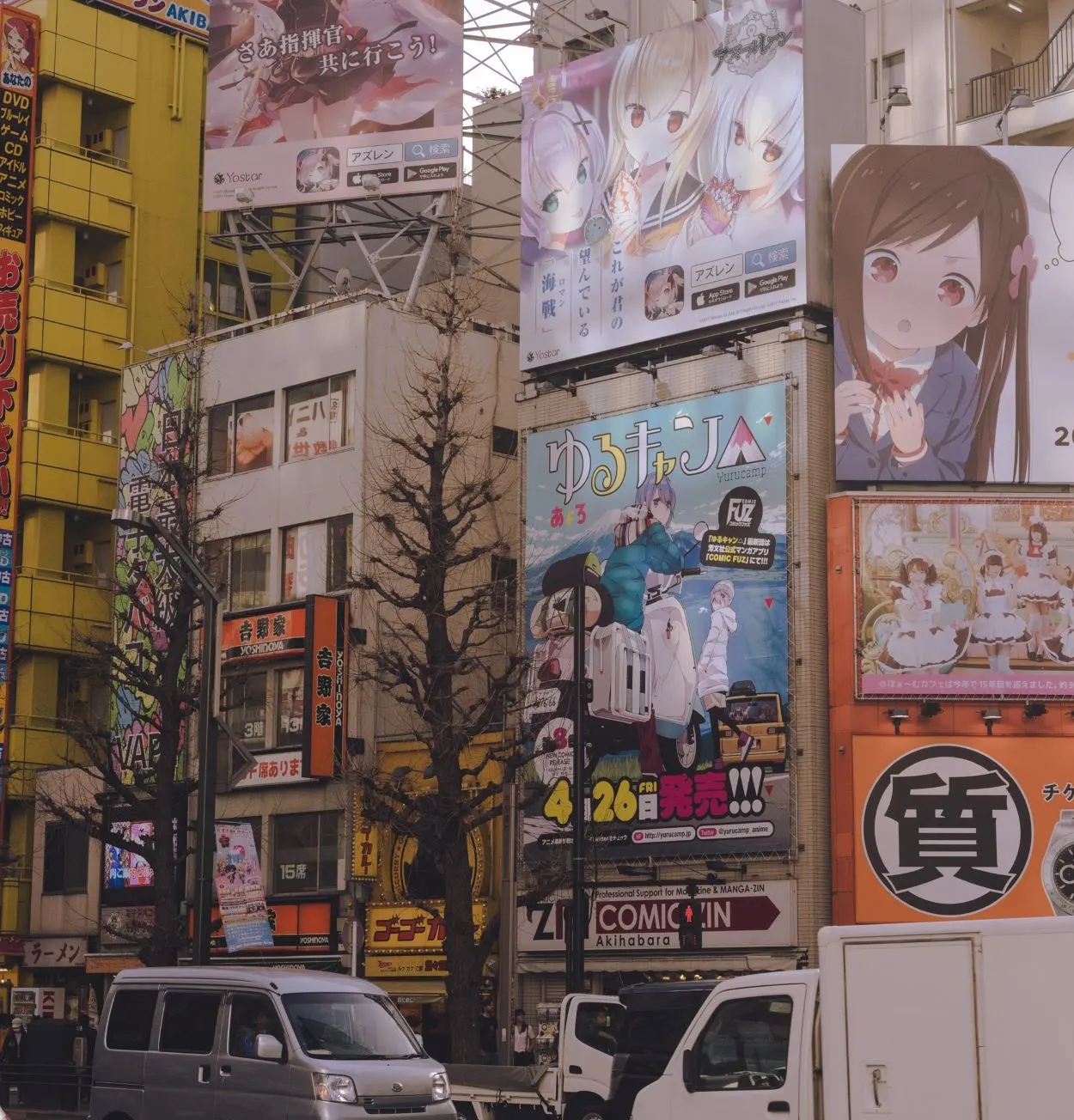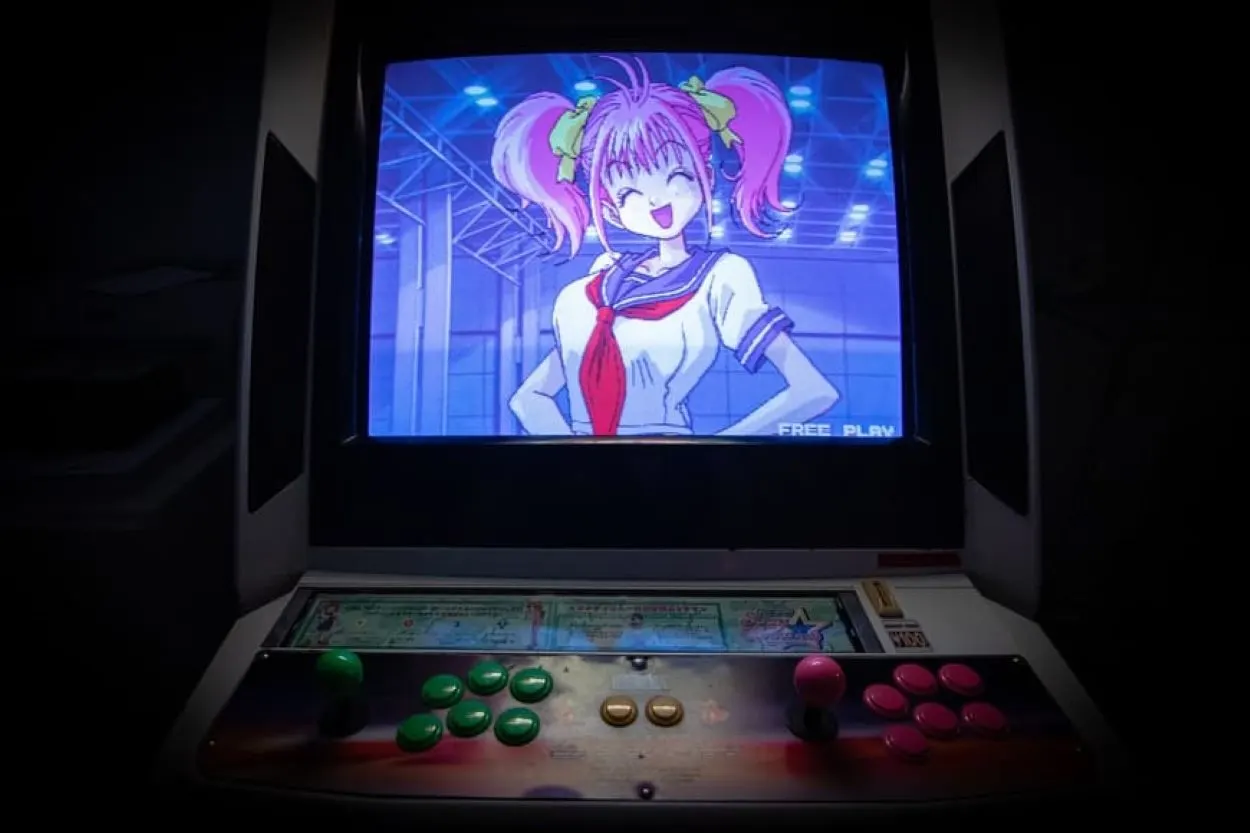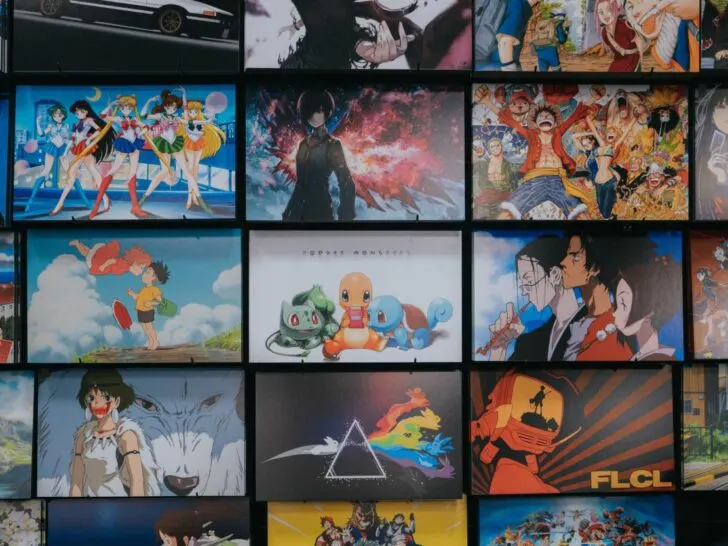Sometimes people use Japanese slang words for explanations, greetings, and emotional outbursts. In contrast to English, there aren’t many slang terms for addressing others.
Slang is extremely difficult to translate and learn because there is no direct translation between languages; instead, you must comprehend them by context.
However, Japan is adopting these slang terms, especially for the younger generation. You’ll also discover them in Japanese movies and reality shows. As a result, they’re simple to learn and use and sound very natural.
We will understand the following Japanese slang words in this blog.
- Otaku.
- Kimo-OTA.
- Riajuu.
- Hi-Riajuu.
- Oshanty or Oshare.
What Does Otaku Mean?
They derived the term Otaku from a Japanese phrase that means you or your house. Otaku is a young person who is especially interested in and knows a lot about computers, computer games, anime, and so on, but may find it hard to communicate with others in real life.
He is someone who devotes excessive time, money, and energy to a hobby, someone who is fascinated by anime or manga. Though the term Otaku arose semi-organically, one man popularized it among Japanese nerds.
Nakamori Akio, a writer, used the word Otaku in an article in 1983. He used the term in a derogatory manner to describe unpleasant anime fans. Following that, anime groups of fans mocked themselves by labeling themselves as Otaku.
Because of the wrong public mindset of withdrawal from society, Otaku is regarded as an offensive word. We refer game members to as Game Otaku, or Gamer. We chose Otaku to write as in hiragana or katakana; the two forms differ slightly. The hiragana word was once commonly used to describe people who enjoy Erotic Manga and still has a pornographic connotation in the minds of many middle-aged Japanese people.
Exploring Otaku Culture and Its Global Impact
In distinction, the Japanese government is now running the katakana word to promote Otaku Economics or Otaku International Soft Power, making the term more formal and acceptable.
If you live in the United States, Seattle might be a great place to have a feel of Otaku culture. When most Japanese people hear the wording of Otaku, they immediately think of Akiba (Akihabara).
The Tokyo district of Akihabara is a popular destination for Otaku. Otaku is one of the many labels devoted to various prospects of this country’s rich culture. Japanese people set up a magnificent culture throughout their long history.
The following video tells us more about the Otaku people.
Types of the Otaku
- Vocaloid Otaku.
- Gundam Otaku.
- Fujoshi.
- Reki-jo.
Characteristics of Otaku
- They are obsessed with everything computer-related and video games.
- They have typical clothing, which includes glasses, tacky shoes, a tacked-on checkered shirt, a rucksack, and a character, who can be identified with them.
- These people are introverted and socially detached.
- They prefer to shop online.
- They use internet communication for almost everything, watching animation and movies, downloading music, and accessing information.
- They are more easily angered, anxious, introverted, disturbed by emotional distress, and easily discouraged.

Kimo-OTA
Kim-OTA is a slang term that means awful, gross, and nerd.
Kimo is an abbreviated form for Kimoi, which translates to creepy.
OTA is an abbreviated form for Otaku, which translates to nerd. Kimo-OTA (Short form of Kimochi-Warui Otaku, also known as a Repulsive Otaku). The cheapest form of the Otaku group allegedly carries a couple of extra negative points comparatively with the normal Otaku.
Technically, anything that causes them to be a nuisance to others counts here. Otaku’s reputation in Japan has improved recently, possibly because of the internet society.
Over a decade earlier, the term Otaku included the words creepy or gross, but this is no longer the case. Otaku is simply an Otaku; it is often not awful. That is why we require this slang, Kimo-Ota.
Characteristic of Kimo-OTA
- They have an untidy appearance, inappropriate behavior, and a lack of social skills.
- People think he is weird and ugly because he is obsessed with anime girls.
- They are creepy and gross.
- A Kimo-OTA is an unhealthy Otaku.
The difference between Otaku and Kimo-OTA
| Otaku | Kimo-OTA |
| Are they social? | |
| They do not lock themselves in their homes; they have social relations. | They are also obsessed with animes. But they lock themselves in their home; they do not have social relations. |
| Appearance? | |
| They have colored hair and have uncommon clothes. | They are untidy in appearance. |
| What is their nature? | |
| They are creative, imaginative, and innovative. | They are freaky and have destructive behavior. |
| Who is the best? | |
| Otaku is the healthier version. | Kimo-OTA is considered to be unhealthy |
differences explained!

What is Riajuu?
The term “Riajuu” is a perfect mixture of “real” and “jiujitsu (fulfilment)” and is used as slang words, but many younger folks now use it in their everyday lives.
This term originated in school online forums. Those who didn’t have many friends didn’t take part in club activities and didn’t have any social life. They spent most of their time digging online, and they required a name for the object of their envy. It refers to individuals who are living their lives to the fullest.
In Japanese Riajuu is (a short form of riaru juujitsu). We use them in fan group circles to denote the complete reverse about an Otaku or absolutely everyone else.
The character who is involved in current factors and has a socially responsible life is the underlying concept. Riajuu is a person who is extrovert and most likely in a relationship with a popular girl.
They frequently used the term as slang to describe someone who has or is determined to live their life to the fullest in the real world with a wonderful social life, making new friends, and falling in love.
One side covets those who appreciate real life and refers to them as Riajuu, whereas the other side mocks those who would only pursue their interests online and refers to them as Hi-Riajuu.
Also, the word Kyojuu refers to people who pretend to be Riajuu but are not.
Characteristics of Riajuu
- Many friends surround them.
- Are members of a school club.
- Have many hobbies for holidays.
- Are in a relationship.
What Does Hi-Riajuu Mean?
Hi-Riajuu is the term that describes the alternative meaning of Riajuu. It begins with hi, which means none. Hi-Riajuu is a term used to describe socially awkward natures, who do not have partners or friends. They are mostly introverts who don’t like to participate in any vigorous physical activities and prefer to stay inside their homes.
Hi-Riajuu people are members of an internet community. These people lack confidence and have weaker personalities. They are opposed to Riajuu. Hi-Riajuu people try to enjoy their lives but others consider them as not living a whole life in the actual sense of the word.
Characteristics of Hi-Riajuu
- Do not have a partner.
- Dislike social life.
- Prefer staying at home.
- Have online communities.
The Differences between Riajuu and Hi-Riajuu
| Riajuu | Hi-Riajuu |
| Do they love to join an offline social networking event? | |
| Yes, they love such social networking events. | No, they are afraid to be a part of an offline social networking event. |
| What photos do they keep on their phones? | |
| They love outdoor photos. | They keep photos of their homes. |
| How do they spend their vacation? | |
| Riajuu love to go out for their vacations; they leave their houses. | Hi-Riajuu love to stay at home during holidays; they do not like outdoors |
| Do they have any partners? | |
| Yes, they have a partner. | No, they don’t like to be in a relationship. |
| What do they do when they see hard-working people? | |
| They want to compliment and support hard-working people. | When they see hard-working people, they don’t wish them success. |
| What do they do when they find someone attractive? | |
| They try to approach them immediately. | They wait for the person to approach them. |
| What do they talk about on calls? | |
| They talk casually on calls about any topic. | They only talk about something important. |
Is it Oshanty or Oshare?
We also know it as Oshare. It denotes being fashionable, sharp, and stylish. It is frequently used to describe clothing, accessories, shoes, handbags, and so on, but we can also use it in the street network such as cafes and restaurants.
The college and high school students replaced the word oshare with oshanty, a newer term for the same thing. Oshare denotes that the person’s fashion, hair styling, outfit, and makeup are trendy.
When you have a great sense of making a choice, such as vehicles, soft furnishings, apparel, cafes, and restaurants, that is also identified as Oshare. It applies to places and things that are fashionable and have a moral judgment. On the Internet, Japanese teenagers frequently use the word osare.
Osare has a similar meaning to oshare, but both have different uses. Imagine someone dressed up who rarely cares about outfits at all. Here, the individual may use the statement “Oh, this is just osare” to conceal her shyness.
If you want to learn more about the Japanese language and other useful Japanese phrases, click here.

Conclusion
- Otaku Culture Unveiled:
- Otaku refers to individuals deeply engrossed in anime, manga, and related hobbies. It was initially associated with a negative connotation. It is now widely embraced.
- Diverse Otaku Types:
- Vocaloid Otaku, Gundam Otaku, and Fujoshi represent subsets of Otaku. They showcase the diversity within the Otaku community.
- Kimo-OTA:
- Kimo-OTA, a blend of “creepy” and “Otaku,” describes an Otaku with socially awkward and unappealing qualities. It emphasizes the evolving perceptions of Otaku.
- Riajuu vs. Hi-Riajuu:
- Riajuu signifies individuals living fulfilling lives with friends and relationships. In contrast, Hi-Riajuu represents socially awkward individuals. They prefer online communities over offline interactions.
- Oshanty/Oshare Stylishness:
- Oshanty, or Oshare, denotes being fashionable. They extend beyond personal attire to encompass choices in various aspects of life.
- Characteristics and Contrasts:
- Otaku’s passion for anime, Kimo-OTA’s negative traits, Riajuu’s fulfilling life, Hi-Riajuu’s introversion, and Oshanty’s stylishness offer a nuanced understanding of Japanese slang.
- Language Evolution:
- Slang terms like Otaku and Oshare have evolved. It reflects societal shifts and the acceptance of previously stigmatized subcultures.
- Communication and Acceptance:
- The article underscores the importance of expressing oneself in Japanese. It fosters communication without direct harm to others. Understanding these slang terms facilitates effective interaction with the Japanese community.
Other Articles
- What’s The Difference Between Wavy Hair And Curly Hair?
- How Noticeable Is A 3-Inch Difference In Height Between Two People?
- What Is The Difference Between Placidus Charts And Whole Sign Charts In Astrology?
- What’s The Difference Between A Gang & the Mafia?
Click here to learn more about these terms in a summarized manner.

